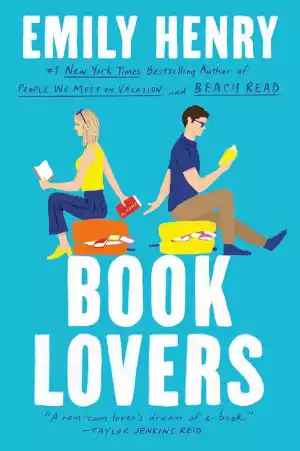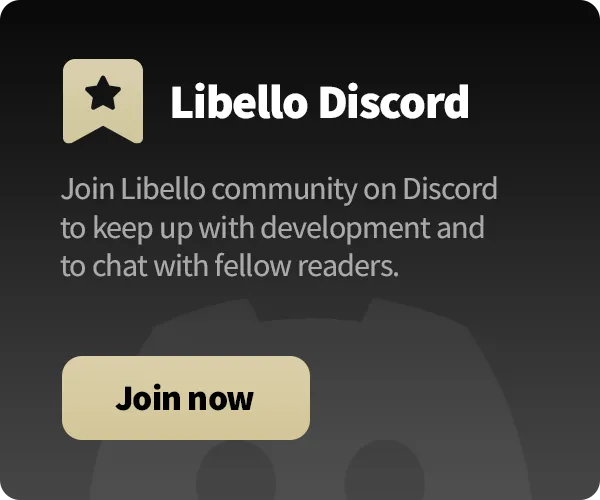
Book Lovers
Nora Stephens’ life is books—she’s read them all—and she is not that type of heroine. Not the plucky one, not the laidback dream girl, and especially not the sweetheart. In fact, the only people Nora is a heroine for are her clients, for whom she lands enormous deals as a cutthroat literary agent, and her beloved little sister Libby.
Which is why she agrees to go to Sunshine Falls, North Carolina for the month of August when Libby begs her for a sisters’ trip away—with visions of a small-town transformation for Nora, who she’s convinced needs to become the heroine in her own story. But instead of picnics in meadows, or run-ins with a handsome country doctor or bulging-forearmed bartender, Nora keeps bumping into Charlie Lastra, a bookish brooding editor from back in the city. It would be a meet-cute if not for the fact that they’ve met many times and it’s never been cute.
If Nora knows she’s not an ideal heroine, Charlie knows he’s nobody’s hero, but as they are thrown together again and again—in a series of coincidences no editor worth their salt would allow—what they discover might just unravel the carefully crafted stories they’ve written about themselves.
exsanguination
He brushes his laptop aside and starts rearranging the pens, pamphlets, and other office supplies on the desk. Maybe I’m not horny for him so much as his clothes and his organizational skills.
chagrined
jilted
I want to drape myself over him like chain mail, or swallow some gasoline, go downstairs, and spit it out as fire.
This, I think, is what it is to dream, and I finally understand why Mom could never give it up, why my authors can’t give it up, and I’m happy for them, because this wanting, it feels good, like a bruise you need to press on, a reminder that there are things in life so valuable that you must risk the pain of losing them for the joy of briefly having them.
“Do you want to dance, Stephens?”
“Do you?” I ask, surprised.
“No,” he says, “but I want to touch you, and it’s a good cover.”
That’s the thing about women. There’s no good way to be one. Wear your emotions on your sleeve and you’re hysterical. Keep them tucked away where your boyfriend doesn’t have to tend to them and you’re a heartless bitch.
I don’t feel like Nadine Winters when he’s this close. I feel like I’m sugar under a blowtorch, like he’s caramelizing my blood.
“I’m not sure you’re even capable of being heartbroken.” Again, I have to laugh. Because on this, he’s wrong. It’s just that once you’ve had your heart truly shattered, a phone call like this is nothing. A heart-twinge, maybe a murmur. Certainly not a break.
Apparently my following through with prior commitments is just more proof that I am a frigid, evil robot who sleeps in a bed of hundred-dollar bills and raw diamonds. (If only.)
I sleep like a baby. Or an ice queen.
“We were only together four months. It wasn’t serious.”
“Serious is the nature of how you date,” she says. “If someone makes it to a third dinner with you, then he’s already met four hundred and fifty separate criteria. It’s not casual dating if you know the other person’s blood type.”
“I do not know my dates’ blood types,” I say. “All I need from them is a full credit report, a psych eval, and a blood oath.”
How inconvenient would it be to fall in love with a person only to find out they had a doll room? The answer is “very.”
“We’re going to have so much fun, Sissy! And you’re going to fall in love with a lumberjack.”
“If there’s one thing that makes me horny,” I say, “it’s deforestation.”
“Look, Nora, you know I love your beautiful, Dewey-decimal-organized brain, but you date like you’re shopping for cars.”
“Thank you,” I say.
“I’m not City Nora anymore,” I say, “I’m laid-back, go-with-the-flow N—”
I’m a grown man, Nora. I can buy my own Bigfoot erotica, thank you very much.
I loved those nights. They taught me that heartbreak, like most things, was a solvable puzzle.
Anything broken can be fixed. Any problem can be solved.
What page are you on? Three, he says. And I already need an exorcism.
“Otherwise I remain unimpressed” is what they’ll put on your headstone.
“You seem pretty pleased with yourself,” he says, “for a woman who just found out she was the inspiration for Cruella de Vil.”
I scowl at him. Charlie rolls his eyes. “Come on. I’ll buy you a martini. Or a puppy coat.”
I’m shocked your artificial intelligence chip allows you to feel surprise.
He’s smirking through his pout. Smirting.
“Or maybe, Nora Stephens, I can read you like a book.”
I scoff. “Because you’re so socially intelligent.”
“Because you’re like me.”
He scowls (still pouting, so scowting?).
“Nora,” he says, “we had a deal.”
“I never agreed to it.”
“You played,” he says.
“Tropes and clichés have to come from somewhere, right?”
“Maybe I have been fishing in the wrong pond. Or, like, the wrong stream of nuclear waste runoff.”
“if you’re the villain in someone else’s love story, then I’m the devil.”
There is a spot in my foot I can’t feel. I stepped on a piece of glass and the nerves there are dead now. The doctor said they’d grow back, but it’s been years and that place is still numb. That was how my heart had felt for years. Like all the cracks callused over.
“We’re just, like, opposing magnets, or something.”
“Opposing magnets are the ones that draw together.”
“Okay, then we’re magnets with the same polarity.”
“Two magnets with the same polarity would never make out against a door.”
Is there anything better than iced coffee and a bookstore on a sunny day? I mean, aside from hot coffee and a bookstore on a rainy day.
“You could sell snake oil to a snake oil salesman.”
This is why the rules exist. To protect against this exact (okay, approximate) scenario.
Tall but not TOO tall, I tell Charlie, can also be added to my headstone.
“You don’t need someone exactly like you, Sissy,” Libby says gently. “You need someone who appreciates you. I mean, you obviously don’t need anyone, period, but you deserve someone who understands how special you are! Or at least someone who can give you a low-pressure night out.”
“I don’t drink,” Blake says.
“No worries,” I say, “I’ll drink yours.”
“A good bookstore,” Charlie says, “is like an airport where you don’t have to take your shoes off.”
“I’d say I’m a realist, but one who doesn’t always understand when what he’s seeing isn’t realism.”
He whispers, “You’re not that tall.”
I whisper back, “I’m as tall as you.”
“I’m not that tall,” he says.
What my body hears is, Let’s make out.
Maybe this is why people take trips, for that feeling of your real life liquefying around you, like nothing you do will tug on any other strand of your carefully built world.
It’s a feeling not unlike reading a really good book: all-consuming, worry-obliterating.
Usually I live like I’m trying to see four moves ahead in a chess game, but right now I can’t seem to think past the next five minutes.
Another “universal truth” Austen could’ve started Pride and Prejudice with: When you tell yourself not to think about something, it will be all that you can think about.
I mean, that’s only one possible through line, but that’s how my brain works: it plots.
The block of ice in my chest cracks. “How do you do that?” His brow furrows. “Do what?”
“Say the right thing.”
